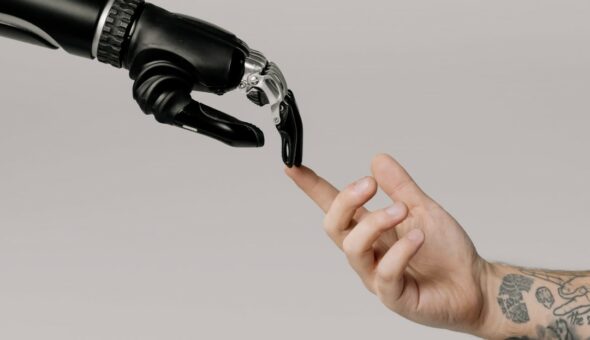On April 30th 2021, sports stars, sponsors, journalists, broadcasters and fans stepped back from social media in a move to combat racist abuse and discrimination. Described as a collective message of defiance, this four-day boycott received widespread support and sent a clear message to the likes of Facebook and Twitter; its high time to combat online hate speech. Here, Sarah Glozer considers the 5 biggest learnings from this period of unified social media silence.
- Hashtag Activism is infectious
The #TakeaStand campaign launched in October 2020 by English football’s equality and inclusion organisation ‘Kick it Out’ to combat racial abuse and discrimination. A key strategy within this campaign was a four-day boycott of social media platforms, planned over the bank holiday weekend, in and amongst a full football fixture programme. The boycott was designed to raise awareness of the toxic climate many elite sportspeople deal with day-in day-out.
Momentum quickly gathered pace and by the time the boycott ‘kicked off’, allegiance was pledged from the likes of British Cycling, British Horseracing, the Lawn Tennis Association, England, Scotland, Wales rugby, English cricket, sponsors including Adidas, Barclays and Budweiser, sports broadcasters including Sky Sports and BT Sport and The Duke of Cambridge. I, along with many others, also took an active step away from social media that weekend. #TakeaStand galvanised support far beyond the sporting community due to its promotion of a simple, actionable and memorable; if you disagree with hate speech, disengage from social media.
- Strength does come in numbers
Hate speech is not only endemic in social media contexts, but rising. Alongside racial discrimination, trolling on the basis of gender, sexuality, disability and religion is a painful feature of day-to-day social media interactions for many. Such toxic forms of communication can have profoundly personal consequences with significantly negative impacts on mental health and wellbeing, particularly for young people.
The #TakeaStand campaign was a timely reminder that we are in this together. Indeed, “we will not take this abuse anymore,” was the core message many sport stars shared ahead of the weekend. As opposed to individual acts of resistance (e.g., reporting problematic posts, or closing down social media accounts), it provided a powerful rallying point for collective, online solidarity amongst a population deeply affected by online abuse.
Social movements rely on what has been termed ‘affective solidarity’; emotions of warmth, belonging and relief that come about from individuals engaging in a shared sense of purpose. What we have seen from #TakeaStand is that this form of solidarity can come from us being together online, as well as us being apart.
- Falling silent is NOT a sign of defeat
As the impact of the blackout continues to be debated, and many proclaim that such boycotts “never work,” sport stars have, unsurprisingly, gravitated back to social media. These platforms are an essential conduit for engaging with fans and sponsors. But buffering up against the tempting social media ‘pull’ is evidence that pushing back on social media can work for personal, as well as campaign, sustenance.
One of the less-discussed benefits of the social media blackout was in its core message of encouraging users to step back from the screen. The benefits of taking a ‘digital detox’ are well-lauded. In many aspects, the #TakeaStand campaign was no different. It offered a temporary retreat from social media; time to heal, to recover, and to replenish energies away from the trolls and toxicity. It was arguably, a step back in order to take a step forward.
While we are programmed to tackle issues we disagree with head-on, to ‘fight’ against racism, falling silent in this context is not a sign of defeat, but more a powerful tactic to call abusers, and the platforms within which abuse is housed, to account. What remains to be seen is how temporary these social media retreats may become. Thierry Henry, has for instance, actively deleted his social media accounts in response to racism.
- Regulation is only part of the answer
Technology has been largely unregulated for the last two decades and #TakeaStand acts as an explicit reminder that better responses to account verification, punishment and government intervention may be required. The Online Safety Bill published last month seeks to do exactly that, aiming to make the UK “the safest place to be online”. It specifically places a “legal duty of care” on platform companies to better monitor and remove harmful content.
Such responses are welcome by many. They also raise important questions regarding jurisdiction given the efficacy of domestic responses in the context of the ‘world wide web’. What’s more, many in the tech industry continue to problematise the more active policing of online content in the context of free speech and democracy.
There is no easy win here and debates surrounding the ethicality of content moderation in social media rage on. Do we need more algorithms to screen for hate speech? Or, perhaps, more real-life humans flagging inappropriate content? #TakeaStand suggests that while reaction may be helpful, it is prevention that is needed; tackling systemic issues of bias and discrimination head-on to achieve a more equitable society offline as well as online.
- The sweet spot? Reduce content and ad spend
This was not the first time that social media channels had fallen silent. In September 2020, celebrities including Kim Kardashian took a 24-hour ‘freeze’ of their social media activity to protest against online “hate, propaganda and misinformation” as part of the #StopHateforProfit campaign. Crucially, the campaign was also supported by an ‘ad pause’ which saw up to 1,200 organisations including Unilever, Coca Cola, Starbucks, and Levi's halting media spend for a month.
With advertising the primary source of funding to keep social media free for access, such boycotts clearly hit platforms where it hurts. In response, the social media behemoths have begun to roll out enhanced reporting and education initiatives, such as Twitter’s new ‘be nice’ nudges. Designed to “turn bystanders into activists,” such developments are welcome but ultimately shift responsibility towards users, potentially calling into question their own culpability.
#TakeaStand once again proves the efficacy of the two-pronged social media boycott; limiting content and advertising spend to make voices heard in boardrooms. Tackling hate-speech as part of responsible business agendas is thus not only good for society, but also good business.
So as #TakeaStand lays down the gauntlet to social media platforms, we will see if it is silence, support or stalemate that wins in the fight against online abuse and discrimination.
Respond



